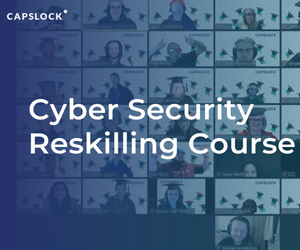Cyber Security Career
Cyber Security is a booming industry that is growing with the rapid development of technology. There are various types of cyber security jobs available in the market. In this page, we’ve gathered some cyber security jobs, career options and jobs platform for you.
Featured Career Opportunities
Editor's Choice
Hays
Hays is a global recruitment company that provides staffing services in various industries, including IT and cyber security and recruitment services for multiple positions, including cyber security analysts, architects, engineers, consultants, managers, and directors. The company works with business…
Mam Gruppe
Mam Gruppe is a London-based recruitment agency exclusively focused on Germany. With over 25 years of experience in the industry, the company has developed a strong reputation for its reliable and efficient recruitment processes….
Trending Jobs
Nexxt
Nexxt is a recruitment media company that uses today’s most effective marketing tactics to reach the full spectrum of talent. By combining precise targeting and machine learning with multi-channel marketing capabilities and a diversified talent network, Nexxt helps you build custom advertising campa…
Flex Jobs
Flexjob is one of the popular job sites for hand-screened remote jobs (work from home jobs) since 2007. They don’t have ads, scams, or junk. FlexJobs has long been a transformative leader in the remote and flexible work spaces, both in helping job seekers have a top quality, trusted way to find thes…
All Listed Jobs
View All JobsFlex Jobs
Flexjob is one of the popular job sites for hand-screened remote jobs (work from home jobs) since 2007. They don’t have ads, scams, or junk. FlexJobs has long been a transformative leader in the remote and flexible work spaces, both in helping job seekers have a top quality, trusted way to find thes…
Nexxt
Nexxt is a recruitment media company that uses today’s most effective marketing tactics to reach the full spectrum of talent. By combining precise targeting and machine learning with multi-channel marketing capabilities and a diversified talent network, Nexxt helps you build custom advertising campa…
ClearedJobs
ClearedJobs.Net is a company that specializes in career resources and job fairs for professionals with security clearances. Job seekers can easily create a profile, upload their resume, and browse through thousands of positions available at all clearance levels, both domestically and internationally…
CyberSecurityJobs.com
CyberSecurityJobs.com is a job board dedicated to cybersecurity jobs, aiming to connect employers and job seekers in the cybersecurity industry. Search for job openings, career resources, and education programs and for employers; post job opportunities and access a pool of skilled professionals….
Cyber Security Career
Cyber security is a growing field with more job openings than skilled workers. According to the US Bureau of Labor Statistics, the number of cybersecurity employment is predicted to expand by 35 percent between 2021 and 2031.
What is a Cyber Security Career?
A cyber security career path involves many duties. It is your job to prevent data breaches and other threats to the security of a company’s computer systems and networks. Expect to take on a wide range of cybersecurity responsibilities at a small business or organization. Specialization is possible on larger security teams at larger companies.
Although a cyber security cyber security career roadmap includes duties that will vary from firm to company, the following responsibilities are representative of those listed in actual job postings:
- Watch for suspicious activity in network traffic
- Conduct real-time investigations and correct problems as they arise.
- Create in-depth reports on incidents.
- Put in place and run firewalls, encryption software, and other safety applications
- Take care of security issues
- Improve information security by creating and sharing guidelines
- Analyze the Dangerous Situation
- Maintain a schedule of regular risk assessments and penetration tests
- Update your resume regularly
Analysts in this field must be well-versed in both the current cyber threat landscape and their organization’s internal networks. This may require you to be comfortable working in an environment that makes use of Windows, Mac, and Linux as well as having knowledge of security measures like firewalls, VPNs, proxies, and SIEMs (security and information event monitoring systems) (SIEMs).
How to Start a Cyber Security Career?
For those just entering the cyber security career paths, common first jobs in IT include help desk support, network administration, and software development. Many cybersecurity experts join the sector as junior information security analysts after getting some experience in IT.
How to Get a Career in Cyber Security?
Before applying for your first cyber security career, take some time to master essential IT skills, like programming, networks and systems administration, and cloud computing and update your CV.
In this role, you’ll put your expertise in identifying and mitigating security risks to good use by designing and deploying defences to protect against a variety of attacks. Eventually, you could rise through the ranks to become the company’s chief security architect.
If you have an interest in technology and prefer to think strategically about security, security engineering and architecture of cyber security career pathway may be the field for you.
Common credentials include CompTIA Security+, Systems Security Certified Practitioner (SSCP), Certified Information Systems Security Professional (CISSP), and Google Professional Cloud Security Engineer (GPCSE).
Your job as an incident responder is to keep an eye on the firm network, and if there’s ever a breach, you’ll be the one to patch the holes and limit the damage.
The fields of digital forensics and cybercrime are also important parts of incident response. Investigators that specialise in digital forensics collaborate with law enforcement to recover data from electronic devices and probe computer crimes.
If you thrive in high-pressure situations and enjoy solving mysteries, incident response may be the field for you.
Common credentials include: Certified Computer Examiner (CCE), Certified Computer Forensics Examiner (CCFE), GIAC Certified Incident Handler (GCIH), and EC-Council Certified Incident Handler (ECIH) (CCFE)
You can decide to move up the ranks and become a leader in your company’s cybersecurity department as you gain experience in the field. Managers in this field ensure the integrity of a company’s digital infrastructure. This position may need you to oversee security teams, act as a liaison between departments, and monitor systems for vulnerabilities. At the executive level of security, you’re usually responsible for overseeing the company’s security infrastructure’s operations, policies, and budgets.
If you’re well-organized, have great communication skills, and enjoy interacting with others, a career in management or administration may be a good fit.
Ethical hackers are compensated for their time and effort in breaking into systems and networks in a morally permissible manner.
Offensive security, red team, white hat hacking, and ethical hacking are just a few of the names for this subfield of cybersecurity. Working in offensive security requires you to be proactive when it comes to computer security. To accomplish this, you’ll assume the role of an intruder and search for weak spots before the bad guys do.
Your job as a penetration tester is to find and exploit security flaws in order to assist businesses improve their own defences. Ethical hackers have access to a wider variety of attack methods (such as social engineering) to help them find and expose vulnerabilities.
Standardized accreditations: Professionally certified in offensive security practises; credentials include Certified Ethical Hacker (CEH), CompTIA PenTest+, GIAC Penetration Tester (GPEN), and Offensive Security Certified Professional (OSCP) (OSCP)
































